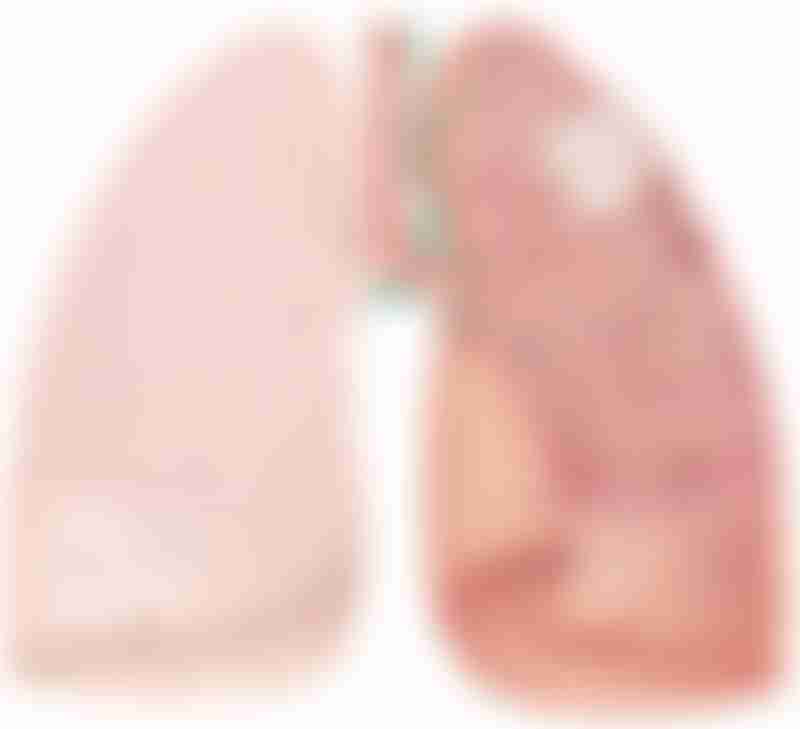Large Cell Carcinoma: An Overview

Source: Shutterstock
What exactly is large cell carcinoma (LCC), you may wonder? When it comes to lung cancer, there are various subtypes that can seem quite complex. Fret not, because this article will explore an overview of this specific type of lung cancer. This article aims to provide the information needed to better understand this diagnosis. With this information, both patients and caregivers can make informed decisions regarding their health and well-being.
In a nutshell, LCC is a type of non-small cell lung cancer (NSCLC), comprising less than 10% of all NSCLC cases.
What is large cell carcinoma (LCC)?
Large cell carcinoma (LCC) got its name from the large size of tumor cells (as opposed to other lung cancer cells) when observed under the microscope. Essentially, LCC is an exclusion-based diagnosis, meaning if there is a lack of
- microscopic appearance of squamous cells (a feature of squamous cell cancer) or glandular cells (mucus-producing cells; feature of adenocarcinoma)
- immunohistochemical (IHC) evidence of squamous cell cancer and adenocarcinoma
Large cell carcinoma can grow from any part of the lung. It grows and spreads more quickly compared to other types of NSCLC. Large cell neuroendocrine carcinoma, an LCC subtype, is particularly aggressive, comparable to small cell lung cancer.
With more knowledge established on IHC evidence of squamous cell cancer and lung adenocarcinoma, the incidence rate of LCC has dropped dramatically. Cases that could potentially be diagnosed as LCC are reclassified as squamous cell cancer or lung adenocarcinoma, according to the IHC evidence.

Types of non-small cell lung cancer subtypes. Images adapted from Wikimedia Commons.
Symptoms
The common symptoms that occur in all types of lung cancer (including NSCLC) are
- Fatigue
- Shortness of breath (dyspnea)
- Persistent cough
- Coughing up blood
- Chest pain
- Back pain
- Weight loss
Related: Feeling Breathless? Do Not Ignore The Signs of Lung Cancer
Causes & risk factors
Smoking is the number one risk factor for all types of lung cancer.
Other risk factors can cause lung adenocarcinomas, such as radon, secondhand smoke, family history, and air pollution. All of these factors increase one’s genetic predisposition to lung cancer.
Related: Are You At Risk For Lung Cancer?
Detection & diagnosis
Lung cancer is usually picked up by detection methods involving imaging of the chest, such as chest X-ray, CT scan, PET scan, MRI, and ultrasound.
But a definite diagnosis of LCC involves the assessment of tumor biopsy under the microscope. This histopathology process in lung cancer diagnosis may include morphological characterization, immunohistochemistry (IHC), and often, molecular or genetic tests (biomarker tests).
While LCC lacks the morphological characteristics of squamous cell cancer and lung adenocarcinoma, a lack of IHC evidence on both subtypes is also needed to confirm the diagnosis of LCC.
A comprehensive histopathology report will contain the biopsy site, tumor size, cancer stage, identified subtype with the morphology descriptions, IHC results, molecular profile (if any), and pathologist’s comment.
Biopsy methods to obtain a tumor sample include bronchoscopy, needle, and surgery.
To find out more, click on the links given above. Staying knowledgeable is absolutely crucial when it comes to effectively managing your overall health. Whether any of the shared information resonates with you personally or relates to someone you care about, it is vital to seek professional medical advice. Doing so can truly make a difference in terms of the outcome and can positively influence the necessary actions that need to be taken. Remember, your health is invaluable, and being proactive in seeking guidance is a significant step towards a healthier life.